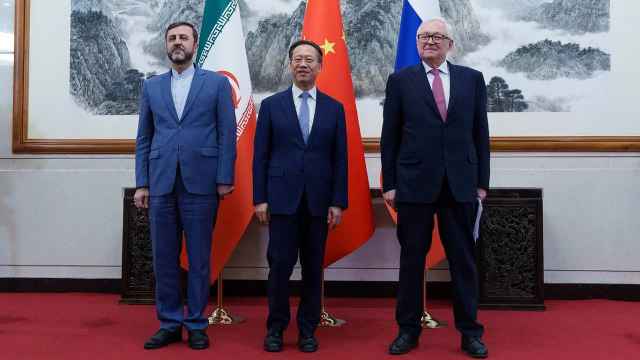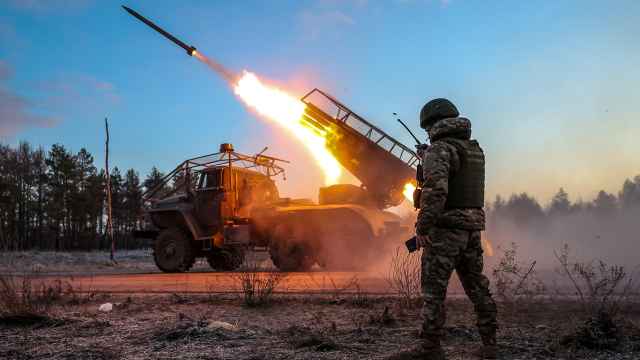The MT Conferences section did not involve the reporting or the editorial staff of The Moscow Times.

Inna Elisanova
Associate
Dentons
Around 150 agreements and 900 decisions on various customs issues have been adopted since the inauguration of the Customs Union of Russia, Kazakhstan and Belarus. The legislative framework of the Customs Union (CU) comprises the CU Customs Code, federal laws of the CU member states dealing with customs matters, and regulatory legal acts of national legislative and executive authorities. At the same time, it should be noted that the judicial and enforcement practice is not entirely consistent. This has led to a significant increase in cases before the Court of the Eurasian Economic Community, which also contributes to the enforcement practice through its decisions.
The expansion of the legislative base is taking place alongside an increase in the functions of customs authorities with respect to controls after the release of goods, an extended statute of limitation for administrative liability (from one to two years) and an extended period of control after the release of goods (from one to three years).
As these changes may create risks in relation to a company's foreign trade activities, as well as be source of missed opportunities, it is more and more important for companies to get a customs compliance to verify compliance with CU customs legislation.
Companies carrying out foreign economic activities should choose one of the following strategies to manage the above-described risks and missed opportunities:
Set up a customs processing and/or logistics department within the company
Set up a customs processing and/or logistics department within the company, and in parallel periodically engage professional advisors to check compliance with CU customs legislation
Outsource customs functions (engage a customs representative/broker), instead of functional departments within the company, and regularly engage professional advisors to check compliance with CU customs legislation
Engaging professional advisors helps minimize the risk of a CU customs law violation, determine opportunities to use customs relief (including for payment of customs duty, VAT), and test the effective functioning of internal procedures and controls.
A customs compliance check might, for example, detect the following risks:
Purchases of goods imported into the CU contrary to CU customs law requirements
Main sources of risk: (1) no procedure for checking customs risks relating to foreign manufactured goods purchased from Russian suppliers in the RF; (2) insufficiently effective supplier selection procedure.
Worst case scenario if detected by customs authorities: (1) initiation of an administrative case against the company under article 16.21 RF Administrative Offenses Code for the unlawful use of goods or purchase, storage, or transportation thereof. The administrative fine ranges from 50% — 200% of the value of the goods; (2) payment of customs duties and import VAT. If the company refuses to pay the customs payments, the customs authorities will confiscate and sell the goods. After payment of the outstanding customs payments, the balance of the proceeds will be returned to the company
The customs value of imported goods is wrong due to the incorrect inclusion of additional expenses such as: insurance, loading/unloading/transshipment, license fees
Main sources of risk: (1) insufficient control over customs representatives/brokers; (2) unclear descriptions in the contract of the transaction price structure and obligations of the parties with respect to the cost of international carriage, insurance; (3) improper application of methods for accruing and including license fees in the customs value of goods
Worst case scenario if detected by customs authorities: (1) adjustment of the customs value and recovery of customs payments; (2) initiation of an administrative case against the customs representative/broker or company under part 2 of article 16.2 RF Administrative Offenses Code for false declaration of customs value. The administrative fine ranges from 50% — 200% of the amount of customs duties and import VAT payable; (3) initiation of an administrative case against the company under article 16.7 RF Administrative Offenses Code for the submission of invalid documents. The administrative fine ranges from 100,000 rubles — 300,000 rubles per customs declaration. The following failures to comply with CU customs law do not create risks, but may result in missed opportunities:
Classification of identical goods with different codes according to the CU's Foreign Economic Activity Commodity Classification
Making deposits to secure customs payments when temporarily importing reusable containers with full relief from customs payments. A conservative approach to exporting defective goods during the warranty period (the export customs procedure is applied, followed by release for domestic consumption)
In light of the above, a customs compliance check is a requirement of the times.
It enables the implementation of several strategies to secure the company's foreign trade functions. It is recommended to engage professional advisors to carry out such a check.
The MT Conferences section did not involve the reporting or the editorial staff of The Moscow Times.
A Message from The Moscow Times:
Dear readers,
We are facing unprecedented challenges. Russia's Prosecutor General's Office has designated The Moscow Times as an "undesirable" organization, criminalizing our work and putting our staff at risk of prosecution. This follows our earlier unjust labeling as a "foreign agent."
These actions are direct attempts to silence independent journalism in Russia. The authorities claim our work "discredits the decisions of the Russian leadership." We see things differently: we strive to provide accurate, unbiased reporting on Russia.
We, the journalists of The Moscow Times, refuse to be silenced. But to continue our work, we need your help.
Your support, no matter how small, makes a world of difference. If you can, please support us monthly starting from just $2. It's quick to set up, and every contribution makes a significant impact.
By supporting The Moscow Times, you're defending open, independent journalism in the face of repression. Thank you for standing with us.
Remind me later.





